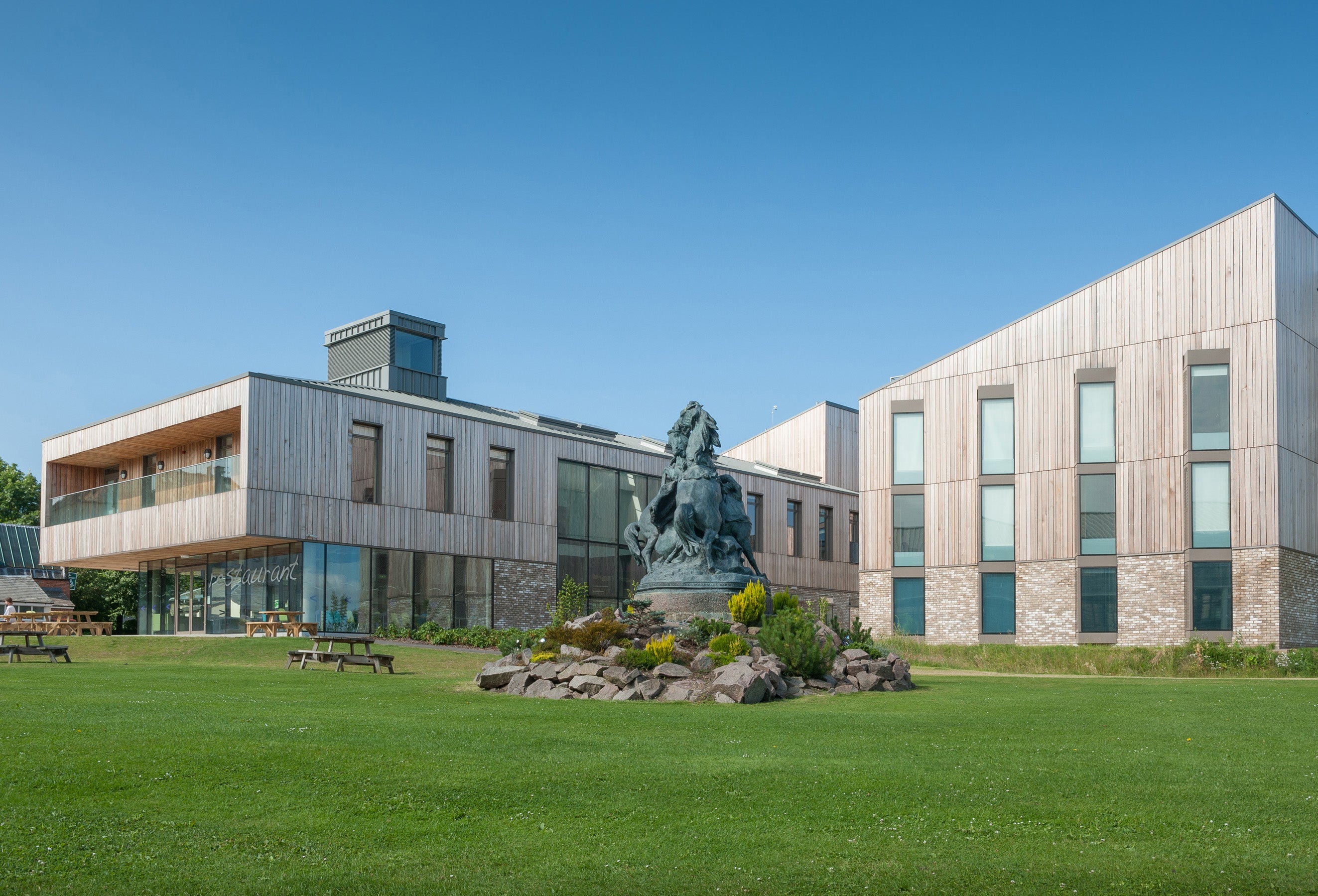
Your support helps us to tell the story
From reproductive rights to climate change to Big Tech, The Independent is on the ground when the story is developing. Whether it's investigating the financials of Elon Musk's pro-Trump PAC or producing our latest documentary, 'The A Word', which shines a light on the American women fighting for reproductive rights, we know how important it is to parse out the facts from the messaging.
At such a critical moment in US history, we need reporters on the ground. Your donation allows us to keep sending journalists to speak to both sides of the story.
The Independent is trusted by Americans across the entire political spectrum. And unlike many other quality news outlets, we choose not to lock Americans out of our reporting and analysis with paywalls. We believe quality journalism should be available to everyone, paid for by those who can afford it.
Your support makes all the difference.
History: Founded in London in 1791, it was the first veterinary college in Britain. Part of the University of London since 1949.
Address: Campuses in Camden Town in London and North Mymms in Hertfordshire.
Ambience: The Camden campus is in direct contrast to the rural setting in Hertfordshire, close to other university colleges and central student facilities. The countryside campus stands alone and has most of the sports facilities; Potter's Bar and Hatfield are the nearest towns.
Who's the boss? Professor Stuart Reid is principal and Vice President, joining from the faculty of veterinary medicine at the University of Glasgow in 2011.
Prospectus: 020 7468 5147, read it online here and follow @RoyalVetCollege (there's the occasional cat/dog photo involved).
UCAS code: R84
What you need to know
Easy to get into? Veterinary medicine is notoriously difficult to get into. Offers are made in grade format and not UCAS points. Standard offers are usually AAA, at A-level. A small number make it through with AAB at A-level if they have mitigating circumstances or reasons for not meeting the normal requirements. BSc degrees are a little easier, with standard requirements being BBB at A-level.
Vital statistics: One of the leading vet schools in the country. Intimate, with over 2,000 students and 1,500 full time undergrads. Its three referral hospitals treat more than 20,000 patients a year, and are staffed 24 hours a day.
Added value: RVC has been accredited by both the American Veterinary Medicine Association and the European Association of Establishments for Veterinary Education in addition to the Royal College of Veterinary Surgeons, so it attracts a number of overseas students. This also puts it high up in the league of international veterinary schools for both research and teaching. The only veterinary school in the country to be awarded a Centre for Excellence in Teaching and Learning by HEFCE in 2005. The university is one of the first in the UK to offer two new degrees: veterinary nursing and veterinary science. Specialist facilities include an equine clinic, farm animal centre and post-mortem hall.
Teaching: In a 2009 audit, the QAA concluded that it could have 'reasonable confidence' in the college.
Research: 55 per cent of academics submitted for the 2008 Research Assessment Exercise are producing “world class” or “internationally excellent” research. It is England’s best school in the agriculture, veterinary and food science unit of assessment for institutions whose research is exclusively veterinary-related. One of the leaders in Europe for research.
Any accommodation? Yes - guarantees a room in halls to 95 per cent of first year students. In Camden, rooms in College Grove are £143.50, and in Mary Brancker House they are £156.76 per week. As RVC is part of the University of London, rooms can also be found in the intercollegiate halls. Prices there are between £194.60 and £259 per week. Rooms in one of the three RVC halls in Hawkshead, Hertfordshire are £112. See here for more details.
Cheap to live there? Oh no - the bad news is that private rents in London will set you back £100 plus. The good news is that the University of London Housing Service has a landlord registration scheme, providing extensive help to students looking for private accommodation. Private rents in Hertfordshire are anything from £70 upwards.
Transport links: Excellent in London, with buses and the underground. Hertfordshire campus is half an hour from London by train; the college has a minibus that picks students up from the station and regularly drives between campuses.
Fees: £9,000 per year for home and EU undergraduates.
Bursaries: Financial assistance offered to students with a household income of less than £25,000 per year. There is also a range of scholarships based on merit and course studied. See the finance page here for full details.
The fun stuff
Nightlife: London, and Camden especially, is brimming with things to do and see. There is a student bar on the Hertfordshire campus and students also frequent the local pubs.
Sporting facilities: Ranked 122nd out of 145 in the BUCS league for 2013/14. The students' union runs teams for most sports, including quirkier activities such as mountaineering.
Glittering alumni: David Grant, vet on Animal Hospital; Sir Frederick Hobday, renowned vet who pioneered the Hobday operation; Adrian Jones, vet and sculptor, responsible for the largest bronze sculpture in Britain, the ‘Peace Quadriga’ in London.
Join our commenting forum
Join thought-provoking conversations, follow other Independent readers and see their replies
Comments